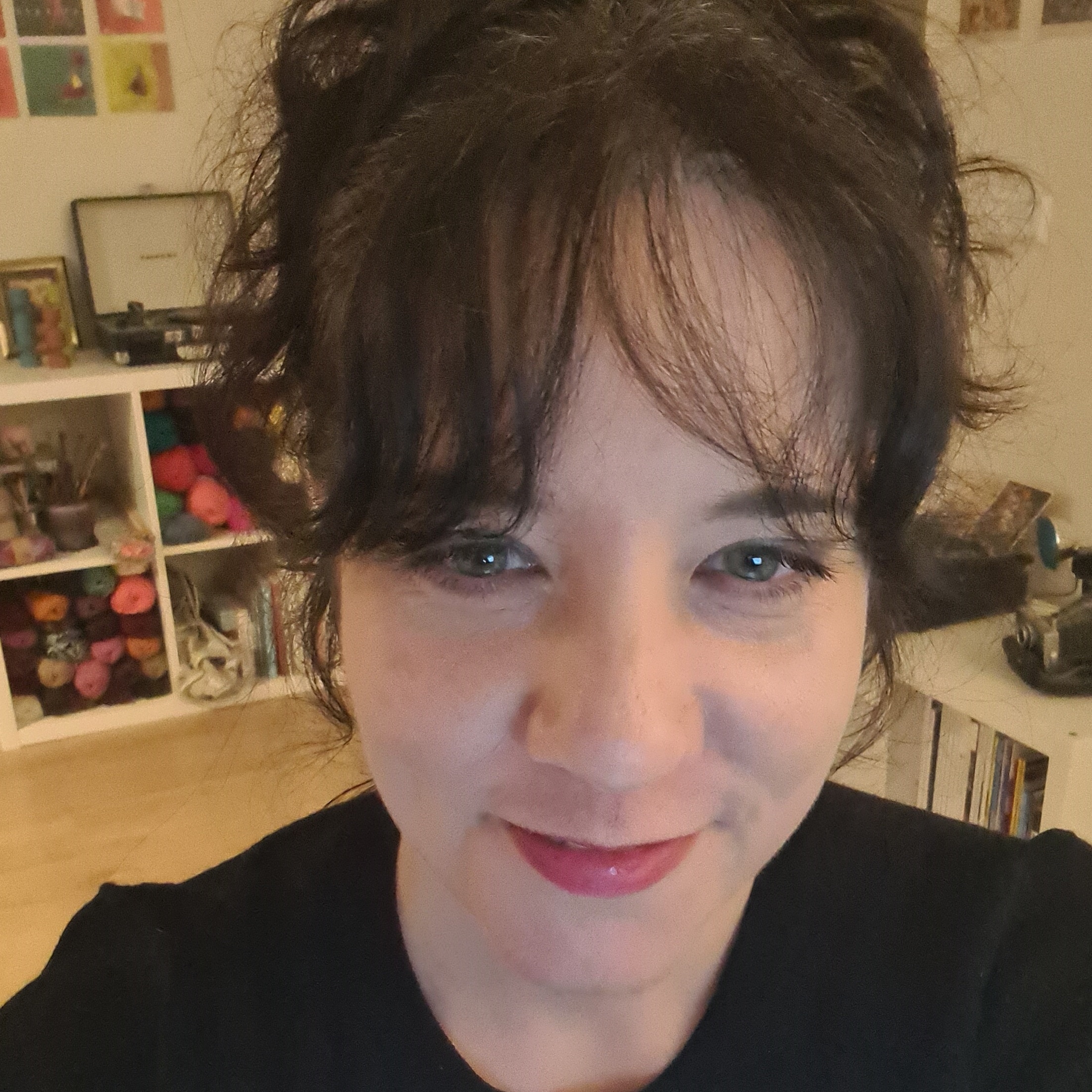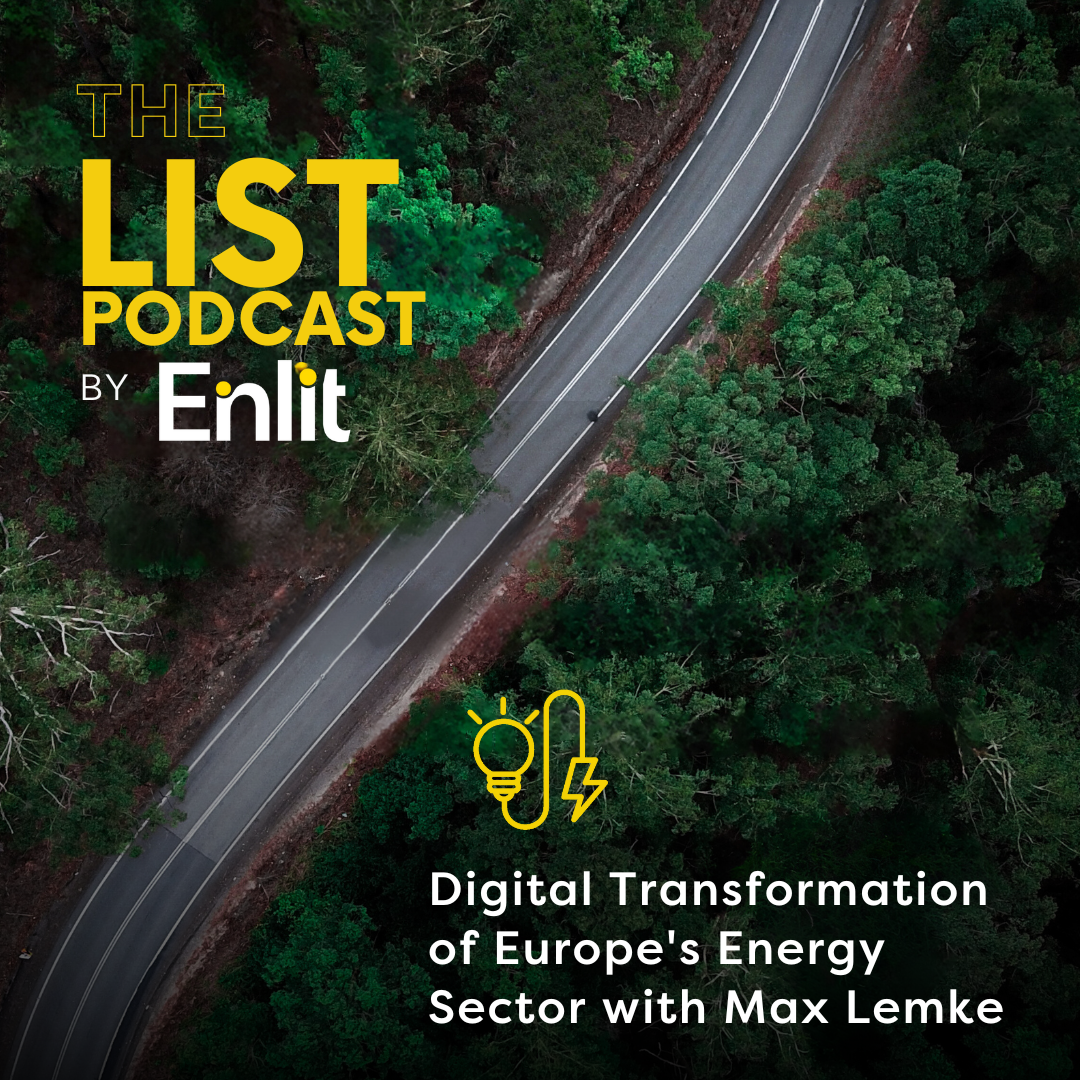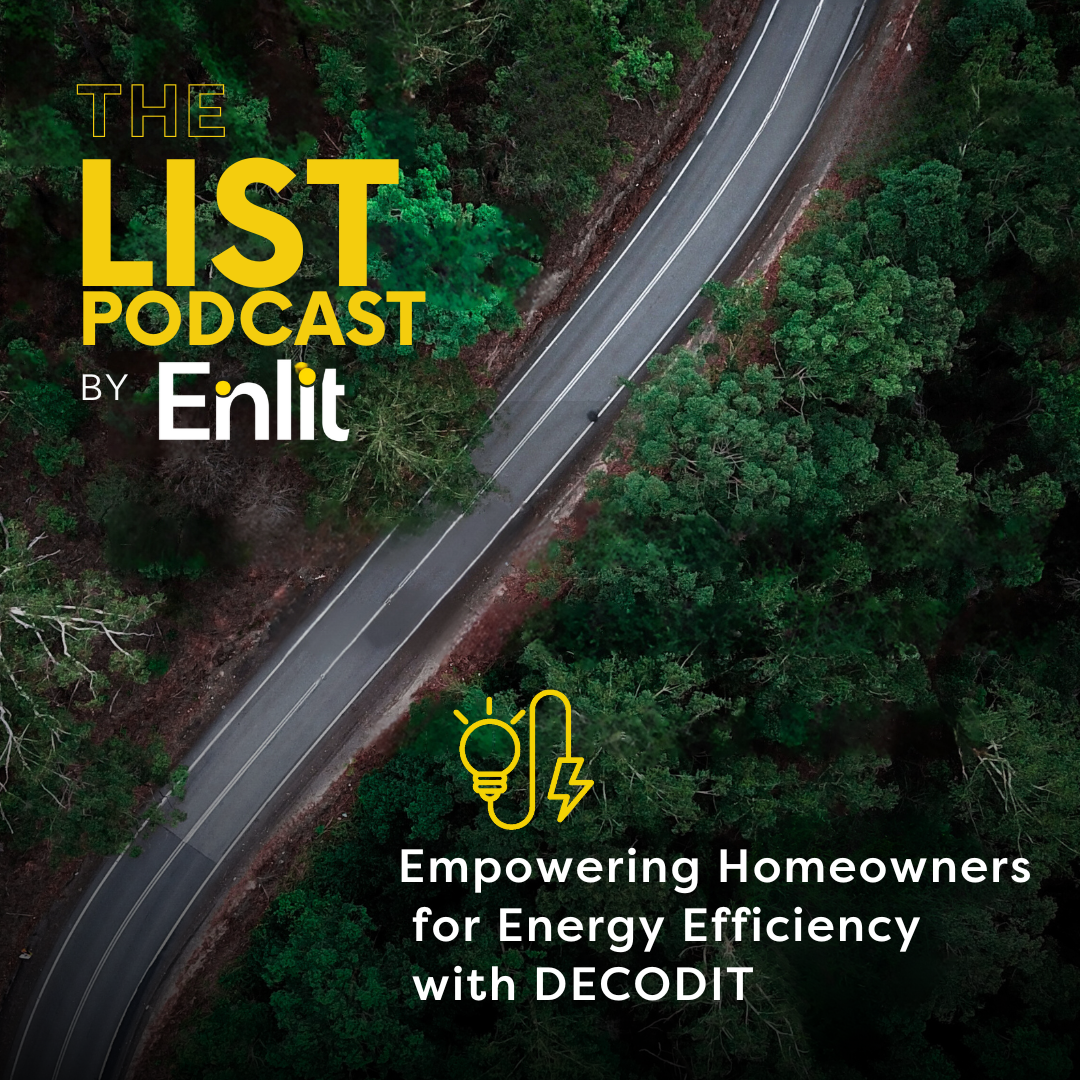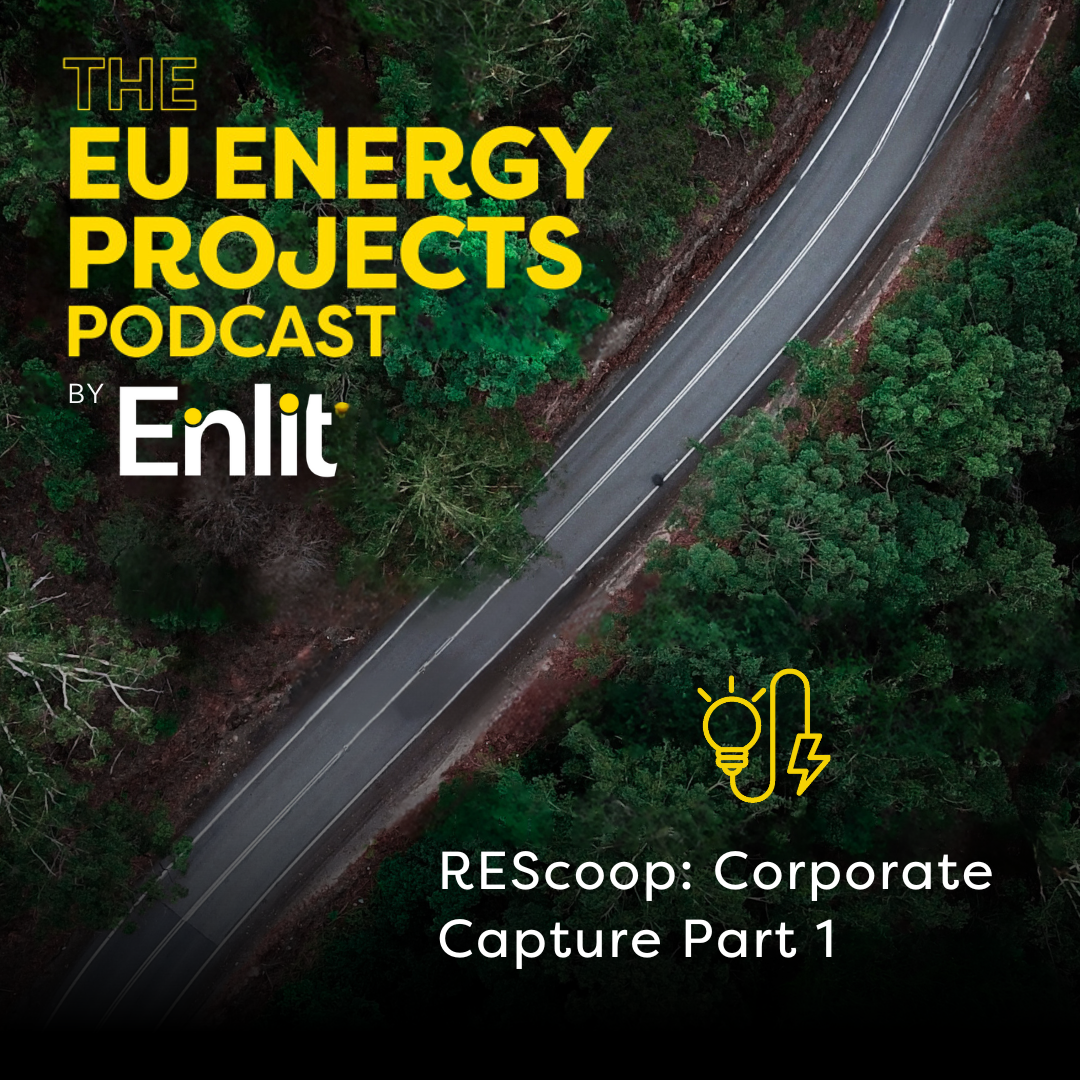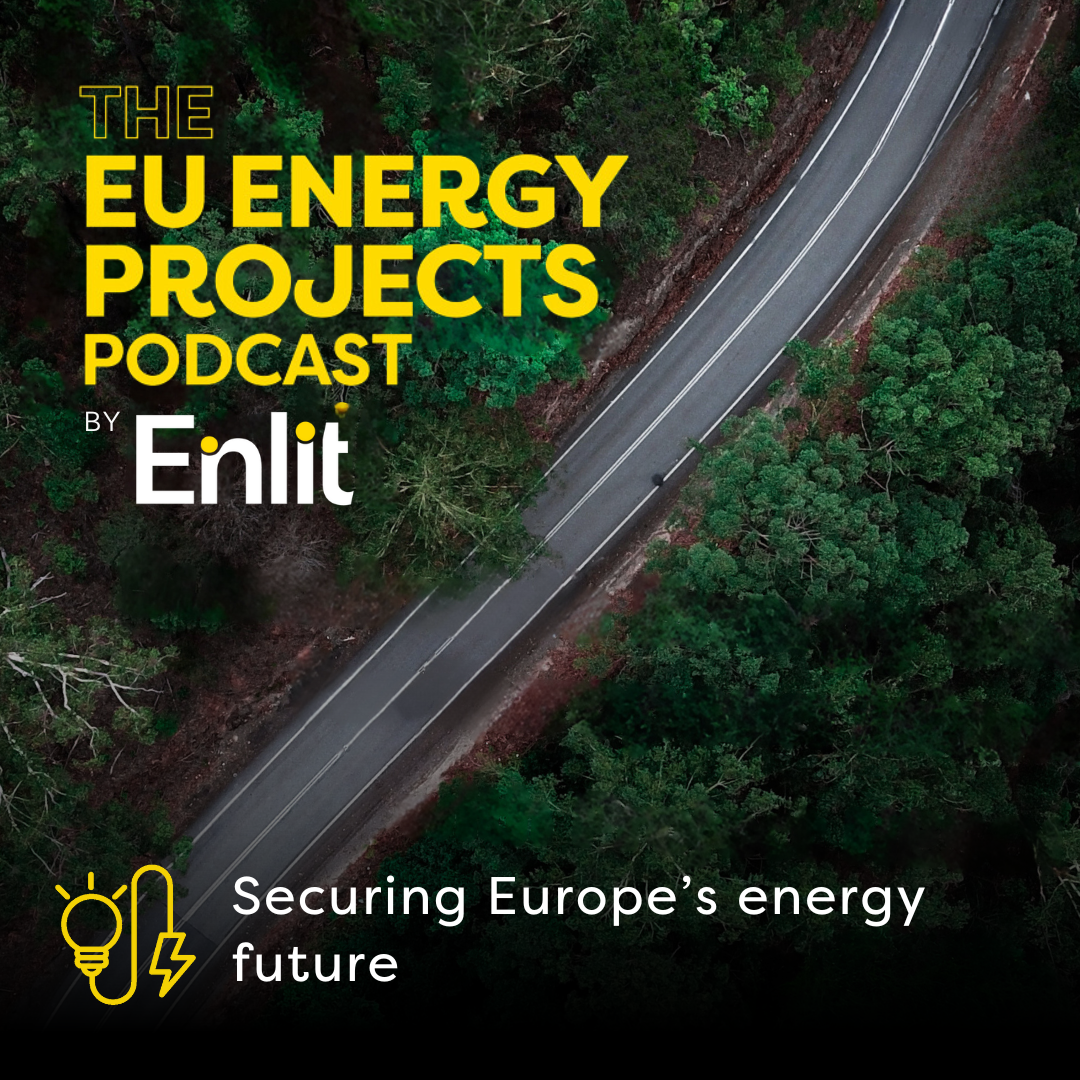Episode Transcript
[00:00:11] Speaker A: Welcome to the EU Energy Projects Podcast, a podcast series from Enlid and friends focusing on the clean energy transition for the European Union and the EU Commission funded energy projects that will help us achieve it. My name is Areti Daradimu. I am the editor of the EU Energy Projects podcast and your host.
This episode is all about the digital transformation that is sweeping across industries and explores its fruits, its future trajectory with a special focus on data AI and smart techs like IoT and digital twins. We'll also look at how AI, including generative AI holds the potential to revolutionize the energy sector, creating synergies between renewable energy, e mobility and and smart buildings. I'm joined by European Commission's Max Lemke as head of Unit Internet of Things, responsible for the digitalization of energy mobility and agriculture. A director at General Connect European Commission, Max is also responsible for several initiatives under the Horizon Europe program related to the digital transformation of key industrial sectors, including the smart energy and mobility sectors. This episode was recorded in front of a live audience at Enlitment Europe in Milan where energy projects were at the heart of the event.
Max, where do you see Europe currently standing in its digital transformation journey and what are the next steps for further advancements?
[00:01:52] Speaker B: Yeah, let me start a little bit with telling, you know we have the commission and we are just at the end of this period, the new commission is the names of the commissioners are announced, they are public and you know they go through hearings in parliament before they enter into office sometime close to the end of the year. So we are in a transition period but our policies that were done with the current still acting commission. Let me just remind you there are, I would say there are three of the most relevant ones. That's the European Green Deal and that's still valid. The drastic decrease in greenhouse gas emissions by 2030, going climate not neutral by 2050 or promoting all around energy saving, security, efficiency, share of renewable, increased share of renewables and competitiveness of the green industry. And then there is with the Ukraine crisis there came the repower EU accelerated electrification. You heard that from the colleague this morning from Schneider Electric, she was very much pushing and also from Octopus, they were very much pushing for electrification, secure and affordable energy for everyone in Repower EU and higher shares of renewable phasing out fossil fuel fuels. And then we had this clearly this message that the digital transformation and the green deal have to facilitate each other so they have to go hand in hand. So that's the baseline and then we two years ago and I would like to take stock a Little bit. We had this digitalization of energy action plan or action plan on digitalizing the energy system. And there we look at basically two facets and I'm taking stock where we are on that one. We have the opportunities and benefits in the energy transition. That means access to data, engagement, more and more engagement by citizens, though that could be much more still. And we have the challenges related to cybersecurity related to energy consumptions, of the digital technologies themselves, who eat a lot of energy.
And when we look what we have achieved, we have. I just give you five very short examples. Just you see, after two years there is something. It's not just two years of nothing happens. So we have a first blueprint for a common reference framework for energy savings applications for consumers, for the man on the street, how can he. She contributed. And I come back to that probably a bit later. We also have a task force on the digital twin. So a digital representation of the energy system which is the basis for anything related to AI, for example. And we have in the last, we have also worked under the pact for skills because we, we have a lack of skills of digital skills in general, but also in the energy sector. So we have a lot started a large scale partnership there between the different actors. And last but not least, coming back to the data centers, we have a new reporting scheme for data centers that addresses their energy efficiency and growing share in energy consumption. That's very important. So looking to the new commission, I'm not allowed to say anything because. And I think that's very clear, absolutely it's in transition, decisions haven't been taken. What I can say is that I can confirm what I heard this morning as something that I regard very important. That also Mr. Draghi in his report on competitiveness has made very prominent. Sustainability has to go hand in hand with competitiveness. So I'm not saying that is the new commission's agenda. I'm saying that was in the recommendations of Mr. Draghi, the former president of the European Central bank, in his recommendations to Mrs. Von der Leyen from the European Commission. That not being policy, but that being a recommendation, I think that's very important to hear. And that was as well said this morning by the colleague from Schneider Electric. She was making that also extremely prominent. So I think that's where we are.
[00:06:34] Speaker A: But I want to stay a little bit on the data side. So how crucial is data in shaping the future of energy systems and driving innovation within the energy sector?
[00:06:45] Speaker B: I would say you could say data is at the center of the power grid. It's at the center of everything. So it's the foundation for any digital tools and that one important thing on both demand and supply side. So both supply and consumer side, I think that's very important. It's not just for the energy providers for DSOs, TSOs, it's also for the consumer or the prosumer as we call them sometimes now when they, when they have get their own solar energy for example. And that's why we are implementing and supporting the implementation of the European energy data space as the core element of the modernization of the energy system. Important here to say we are trying to facilitate the integration of the individual data infrastructures. So the data spaces that exist in member states to make them cooperate to share common standards across Europe. And we are investing that to boost the sharing of data. So more data sharing, more services respecting EU regulations, that's extremely important. Also on the general data protection regulation. So when it comes to personal data, strengthen interoperability and making more innovative services available. We have so far invested 100 million in Horizon Europe research which are now making their results available in digital Europe in the implementation and also in the Connect Europe facility where we more look at cross border interoperability. So that's a typical infrastructure. The infrastructure is in the individual member states, developed by the member states. But we look at the cross border dimension from the European perspective. And after that we have now started also in research investment on the digital twin. We have a project that's called Twin EU that helps developing the digital twin of the energy system. And we also have some projects who work on piloting IoT Internet of Things and Edge cloud solutions for the, for the energy system and piloting in, in that energy system. So. And that's another 56 million. So I can say on these innovative data related projects, the European Union has invested 156 million or more and that usually is then also complemented by the individual companies who are, who are there exactly gets it to refund. Bit less than half.
[00:09:23] Speaker A: Did you know that ENLIT has another podcast? The Energy Transitions Podcast is a broad ranging bi weekly podcast about the people accelerating the energy transition in Europe and beyond. You can find it on Spotify, Apple or wherever you enjoy your podcasts.
What is the role that AI is actively playing now and how do you foresee the future of the energy sector with AI?
[00:09:52] Speaker B: I mean until two years ago we heard AI. Since then we hear generative AI, foundational models and the enormous power in processing and generating all types of content with impressive performance and quality. That means they Mix everything, text images, time series predictions, optimal decisions that were taken in the past. And we are learning from that. And that's why I would say AI and generative AI are revolutionizing all our sectors and in particular also the energy sector because they lead to increased efficiency, reduction of cost and more sustainable future. Or let's say they will lead to that. I don't think they are yet that far advanced that we can already harvest from those technologies. But. But I think it's extremely important that we now build on these technologies. I have in mind things like time series forecasting. So what would happen based on the past, or enhancing predictive maintenance of wind turbines, for example, or a big one. Optimizing renewable energy production and storage to look across the different infrastructures and in general improving the grid management and energy solutions in general in energy, what is the. Often we call that killer application or the biggest challenge in the energy sector. And when I look at the different infrastructures that we have, we have the renewable energy infrastructures, we have the smart meters, the different infrastructures in different countries. And now we have coming the electric vehicle charging infrastructures which will become bidirectional at some point. So they also contribute to the storage system. And we have the smart buildings infrastructure or smart buildings coming. And they're all a lot in silos. So what I think, I always think about it in a way of like the human.
We call what we have as a vision in mind the digital spine of the energy system. So we would like to connect all these infrastructures digitally. Like the digital, like the spine in your body, connects all your nerves. So we call that the digital spine of the energy system. To take a holistic view across all the systems and through optimization, I strongly believe we can save 10% and more or become 10% more energy efficient. By looking across, using the storage systems properly, using smart tariffs and looking at all these different infrastructures, connect, optimize and leverage investments. Because we have huge investments in these infrastructure. And the digital part is a small part, I think, but the benefit of that small part will be enormous. In particular when we look at storage as well and bidirectional charging. And if we now see that, that all is combined, now think of the body again, the human brain is connecting all the nerves and drawing its conclusions. So think of generative AI tools becoming the brain of this energy system. Optimizing this energy system like the brain of the human, of the human body. So to allow decision making, smart decision making. So using these foundational models for smart decision making, that means using Decision transformers to talk in AI language which harness the strengths of transformer models. That's by the way the technology behind open AI and Google tools, foundational models in AI or that scenario generation and simulation, you think of the past scenarios you senate, you generate new scenarios and you simulate what would happen and use that at the time when a crisis happens. And that all contributes to the Commission policy in general. And with the initiatives of the European Union at the moment that are already out, like the generative AI for EU initiative, we are supporting these new use cases of artificial artificial intelligence. One of them being energy.
[00:14:22] Speaker A: Exactly. And it seems a little bit that sky's the limit when it comes with AI. Of course. Personally I'm very happy that the Commission looks also of the ethical part of it and they have done a lot on that, on that matter. But what about the demand side? So how can AI and digital tools be used to better assist energy users, the individual, the communities in managing consumption and efficiency? Because here money also at the beginning.
[00:14:51] Speaker B: Of the Ukraine crisis, we were, we were in the situation that we saw a chance or the risk of blackouts coming. So we were thinking how can we get the consumer more engaged in saving energy when needed? So well, it's not that easy to to tell the consumer now you save energy, you should charge your car not now, but later at night, if that's all manual. So we thought about what we can do and we looked at looking whether we can get an energy savings application, savings app on the mobile phone, like the COVID app installed for users. So we developed actually it's not our role, but we developed a common reference framework for the market to provide such tools. And we are going in several generations there the first generation which is available for energy providers to use for the market to use. They provide eco friendly tips, they allow consumers to make voluntary decisions manual, they identify areas for saving energy or they could contribute to the resilience of the energy grid in times of crisis, risk of blackouts. Now we have started that was done under Horizon Europe and it's actually used now we have started a second generation.
After this first generation was successful and adopted in many member states. 11 states of the European Union we have started the second generation which uses more real time data takes into account also the general data protection Regulation obviously very very much introduced customized features or supports prosumers harvesting energy and using energy. And we are looking and now comes the AI. We are looking at the third generation. And the third generation would be to use this AI powered digital spine to also help the consumer to better optimize his energy use and to automatize that. Because that is when it would really happen, when a consumer trusts a tool that the tool would optimize his her energy usage. Obviously there's a lot to go. We need smart meters everywhere for that. And we definitely also need, we need tariffs which are flexible and so that it works.
[00:17:29] Speaker A: What impact will the digital transformation, AI and smart systems have on Europe's energy equipment and system supply industry? Because I think this is a very important question.
[00:17:39] Speaker B: Well, you saw the opening panel this morning and I would say when I look at the supply industry, Europe has global leaders go around here. You see many European companies. You also heard this morning that there is a lot of sweat.
On the one hand, you call it sweat, you could call it competition. Yeah, competition is also stimulating in a way, so whatever. But we have them, they are strong and they have a huge potential to stay strong. And the same is true for SMEs and startups in these areas. Just to give you some numbers, 13.5 billion in funding for startups was made available in 22 and 23. We had the same again and that was all on batteries, carbon, renewable solar fuel cells, renewable EV charging and so on. But I think it's important that you heard already in the opening panel this morning that the industry is really at a critical juncture, facing challenges such as grid bottlenecks, cyber attacks, extreme weather was mentioned, and also aging infrastructure. And last, not least, also strong competition from other parts of the world. So it's important to have strategic investments. You also see such recommendations again in the Draghi report. And I think it's important that we look into that. But Europe's industry has the potential for securing its position. But it cannot sit and wait.
It has to act. And obviously there also our programs, European Union research, innovation, deployment, infrastructures, structure programs come in and can help on the success of these companies. But we cannot do it alone. So we can only help and stimulate. And I think as a final remark to that point, I would like to say we should learn a bit from the platform economy. On the consumer side, you know that Europe is not very strong on consumer platform. In the industrial sectors, I don't think we can afford it that the platforms are provided to us by others. So we should more invest in community models, our ecosystem, developing their own digital industrial platform, for example, in energy, where the different actors from the different sides of the markets mean rather than leaving that business and leaving that field to the very large companies with headquarters far away from us.
[00:20:21] Speaker A: Excellent it's really refreshing to know that the commission is on the ball. And on that positive note, I would like to thank you very, very much for this conversation.
You've been listening to the EU Energy Projects Podcast, a podcast brought to you by Enlighten France. You can find us on Spotify, Apple and the Enlit World website. Just hit subscribe and you can access our other episodes, too. I'm Aletti Daradimo. Thank you for joining us.
